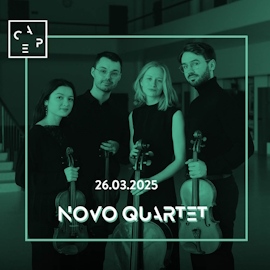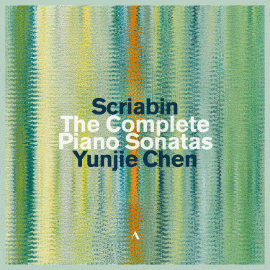Ernst Kreneks Serenade für Klarinette, Violine, Viola und Violoncello ist ein sehr selten zu hörendes Werk aus dem Jahre 1919, ein Scharnierwerk der Spätromantik und der anbrechenden Moderne.
Viel serenadenhaften Charme gibt es im grazilen ersten Satz, während der erste von zwei langsamen Sätzen moderner und schwermütig klingt.
Das Scherzo hat einen Walpurgisnacht-Charakter, ehe dann im vierten Satz wieder Nachdenklichkeit einsetzt. Es folgen dann noch zwei schnelle Sätze voller Kontraste und Energie. Diese herausragend originelle Komposition ist auf diesem Album in einer zupackenden, akzentreichen, sehr farbigen und spontan rhetorischen Interpretation zu hören.
Die viersätzige Serenade von Hans Gal klingt in dieser inspirierten Interpretation nicht so entspannt, wie es der Titel vermuten lässt. Sie umfasst ein fantasievolles Cantabile, eine energetische Burletta, ein serenadenhaftes Intermezzo und am Ende ein schwungvolles Giocoso. Kilian Herold, Florian Donderer, Barbara Buntrock und Tanja Tetzlaff führen dann auch noch Pendereckis Klarinettenquartett aus dem Jahre 1993 auf, nicht wirklich ein serenadenhaftes Werk, das hier in einer wunderbar artikulierten und transparenten Interpretation zu hören ist. Insbesondere die beiden langsamen Sätze, das klagende Adagio und das traurige Abschiedslarghetto gehen wirklich unter die Haut.
Es ist absolut fabelhaft, wie das Quartett hier gespielt wird. Die zentralen Sätze, das Scherzo und die Serenade, sind ebenfalls absolut fesselnd, und wenn die Krenek-Serenade für viel Hörer eine angenehme Entdeckung darstellen mag, ist diese Aufnahme des Klarinettenquartetts von Penderecki das wirkliche Highlight dieser Produktion.
Ernst Krenek’s Serenade for clarinet, violin, viola, and cello is a rarely heard work from 1919 that bridges late Romanticism and the dawn of Modernism.
There is much serenade-like charm in the graceful first movement, while the first of two slow movements sounds more modern and melancholy.
The Scherzo has a Walpurgis Night feel, before the fourth movement returns to a more reflective mood. This is followed by two fast movements full of contrast and energy. This outstandingly original composition can be heard on this album in a gripping, accentuated, very colorful and spontaneously rhetorical interpretation.
In this inspired interpretation, Hans Gal’s four-movement Serenade does not sound as relaxed as the title might suggest. It consists of an imaginative cantabile, an energetic burletta, a serenade-like intermezzo, and a lively giocoso at the end.
Kilian Herold, Florian Donderer, Barbara Buntrock and Tanja Tetzlaff then perform Penderecki’s Clarinet Quartet of 1993, not really a serenade-like work, which is heard here in a wonderfully articulate and transparent interpretation. Especially the two slow movements, the plaintive Adagio and the sad Farewell-Larghetto, really get under your skin.
The way the quartet is played here is fabulous. The central movements, the Scherzo and the Serenade, are captivating, and while the Krenek Serenade may be a pleasant discovery for many listeners, this recording of Penderecki’s Clarinet Quartet is the real highlight of this production.





















